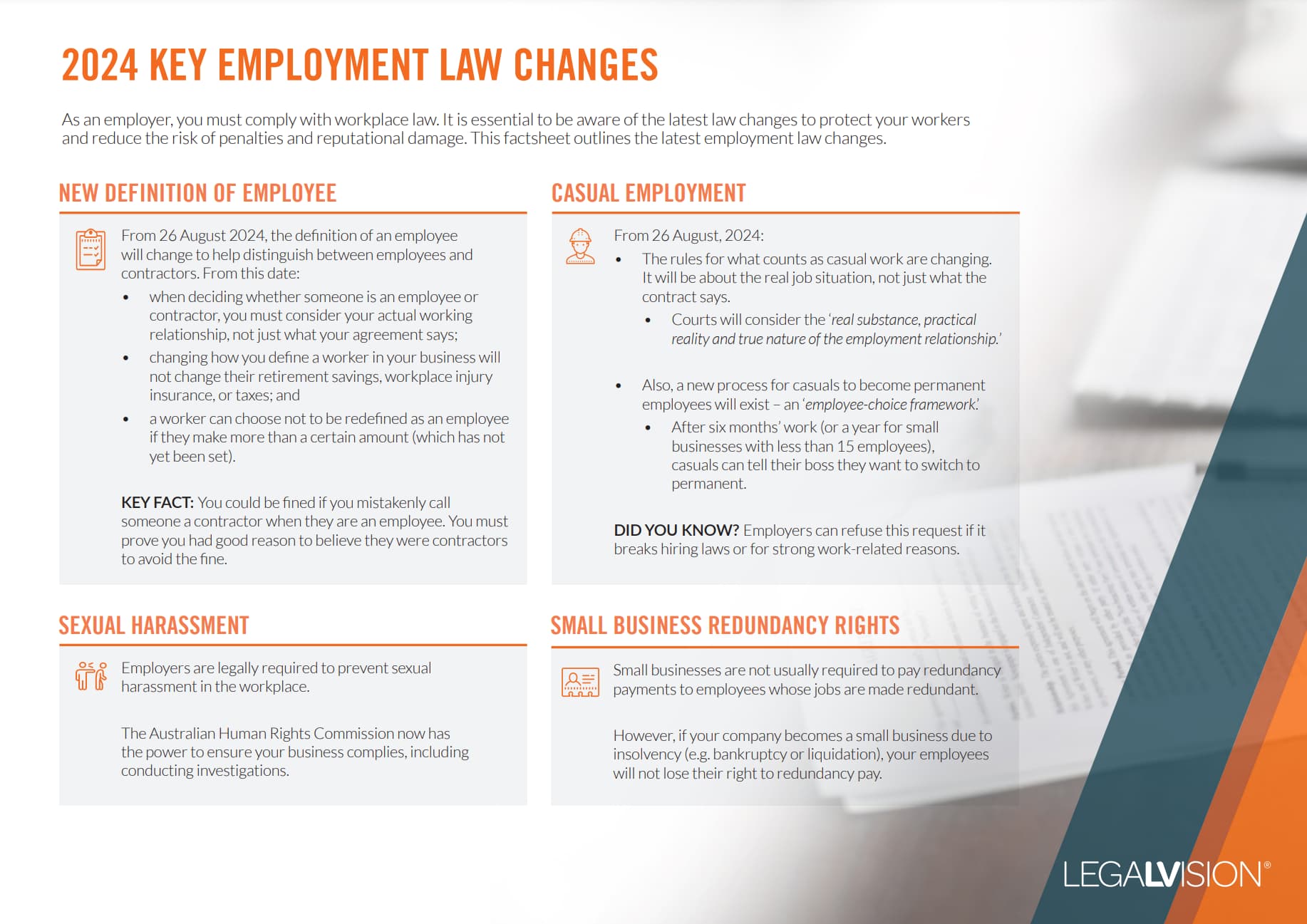As an employer, it is best practice to have your employees sign an employment contract. By signing this contract, both parties agree to fulfil their responsibilities as outlined in the contract. Employers use this contract to communicate their expectations and requirements to their employees, with the understanding that the employee will not breach any of the clauses. Your employees will likely rely on the contract to understand their terms of employment. However, you may be confused as to what to do in the event that an employee breaches their contract. This article will provide guidance on what you can do if you find yourself in such a situation.
What is a Breach of Contract?
A breach of contract arises when either you or your employee fails to comply with the agreed terms. A breach may be deliberate or accidental. In any case, it is imperative that the parties understand what may occur in the event of a breach of contract.
An employment contract will contain two types of terms, being express and implied terms. Express terms are agreed upon by both parties and can be articulated verbally or in writing. Both you and the other party should sign the contract to indicate that you understand and agree to the express terms at the commencement of employment. In contrast, implied terms are inferred by custom and practice, common law, or statute. For example, your employees have the obligation to maintain your business’ confidentiality, even if this is not an express term in their contract.
Certain terms in an employment contract are governed by the Fair Work Act 2009 (Cth), a modern award or an agreement. Of the terms regulating the employment relationship, a modern award will typically outline:
- minimum terms;
- leave entitlements; and
- other benefits.
What Are the Remedies Available for Breach of Contract?
1. Compensation
When a party breaches a contract, the other party often seeks damages as a remedy. You can claim compensation for any financial loss resulting from your employee’s breach. It is quite common for employees to violate their post-employment obligations, which often leads to employers pursuing damages through legal action.
However, your employee could also bring legal action against you for unfair dismissal or other unlawful conduct. For example, in Sherry v Toyota [2020], the employer (Toyota) had to pay damages to the employee (Sherry) following his dismissal for supposedly breaching his employment contract. Toyota believed that Sherry had misused his work credit card while on a work-related trip. However, the court determined that Toyota should not have dismissed Sherry since his conduct did not constitute serious misconduct. Therefore, Sherry was entitled to damages wherein Toyota had to pay his salary from when he was dismissed, as well as redundancy pay.
This case highlights that the courts will award damages for financial loss, as well as the importance of understanding the terms of an employment contract as an employer.

As an employer, it is essential to understand what employment laws have changed and their implications for your business — particularly the changes to the Fair Work Act 2009 through the new Closing the Loopholes legislation.
2. Specific Performance
Specific performance is a legal remedy where the court orders a party to fulfil their legal obligations. However, this is a difficult remedy to obtain because the court will only award it where damages are insufficient and do not compensate for the nature of the damage caused. Additionally, the court will not order specific performance if the party’s obligations are unclear or of a personal nature.
3. Injunction
An injunction is a court order for a party to either do or refrain from doing a specific act. For example, in Tullett Prebon PLC v BGC Brokers LP, the employment contract had a restraint of trade provision that prevented the employee from working for a competitor until the end of a fixed term or three months after the termination of employment.
The employee resigned, but Tullon Prebon did not accept the resignation and allowed them to be on gardening leave whilst paying the employee. However, the employee went to work for a competitor. Therefore, Tullon Prebon sought an injunction to prevent the employee from working with the competitor until the fixed term ended in 11 months. The Court held that 11 months was too long and issued an injunction for 6 months from the date of resignation.
Continue reading this article below the formKey Takeaways
If an employee violates a contract, it can be difficult to understand what actions you can take to address the situation. By understanding the nature of the breach and the potential remedies available, you can take informed and strategic actions to protect your business interests. Firstly, it is crucial to have a comprehensive understanding of your employment contracts and the legal framework governing them. Moreover, you should clearly assess the breach to determine whether it warrants compensation or specific performance. Compensation can help you recover financial losses, while specific performance may compel the employee to fulfil their obligations. However, remember that specific performance is challenging to obtain and only granted when other remedies are inadequate.
If you are experiencing a contractual breach, our experienced employment lawyers can assist as part of our LegalVision membership. For a low monthly fee, you will have unlimited access to lawyers to answer your questions and draft and review your documents. Call us today on 1300 544 755 or visit our membership page.
We appreciate your feedback – your submission has been successfully received.











